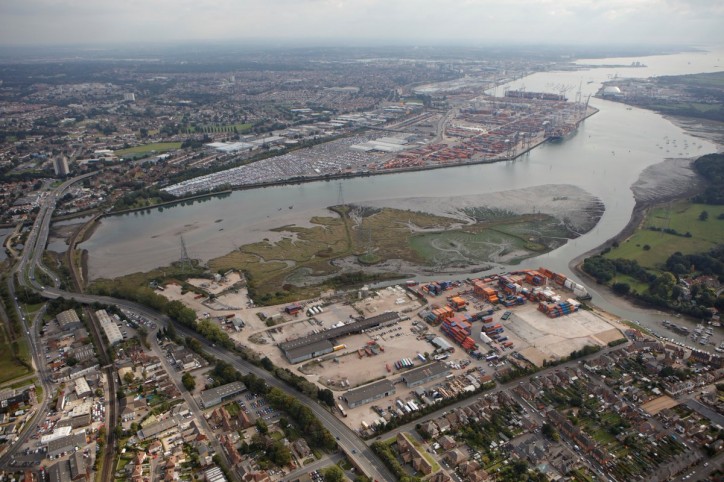Eling Wharf has been acquired by ABP Southampton in a move that is designed to secure employment and the key role the wharf plays in supporting the Port of Southampton.
The 41 acre site, which sits adjacent to the A35 and is predominantly used for storage, is currently home to 24 tenants running a variety of businesses.

ABP Southampton Director, Alastair Welch explained why the port had decided to buy Eling Wharf.
“Port users have increasingly relied on Eling Wharf to support their operations as the port has become busier.
“We were keen to take the opportunity to secure the site to support the important work of tenants on the estate,” he said.
The multi-million-pound sale was confirmed on January 25 and in the coming weeks and months a number of improvements will become visible on the site.
ABP Southampton plans to improve the look and feel of the site, with a view to tackling more deep-seated challenges that are a legacy of the land’s industrial use.
“As we progressively enhance the site over the next five years, we will work with the council to explore longer term options for Eling Wharf,” he said.
An event for tenants is being planned so they can meet members of the ABP Southampton property team.
“Our priority is to make a number of visual improvements to the site including replacing boundary fencing and security,” added Mr Welch.
The site has a long history of industrial use associated with its waterside location, making a significant contribution to the local economy and providing employment opportunities to support the Totton and Eling community for generations.
In medieval times the wharf was used for shipbuilding and there was a thriving timber trade. In more recent times a number of industries occupied the site including a chemical works and coal importers.
ABP Southampton is the UK’s number one port for export. It contributes £1 billion to the UK economy every year and supports 15,000 jobs nationally. It is the UK’s number one cruise port welcoming 2 million passengers each year and handles on average 14 million tonnes of commodities each year.
Source: ABP Southampton